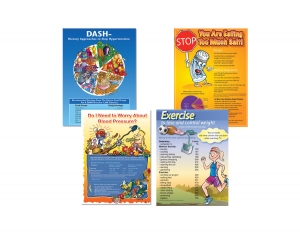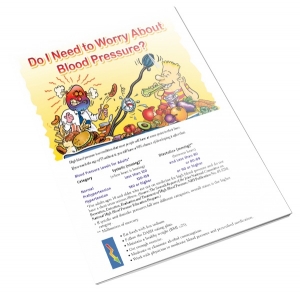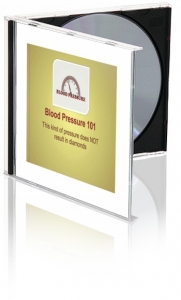Medication and High Blood Pressure: A News Update
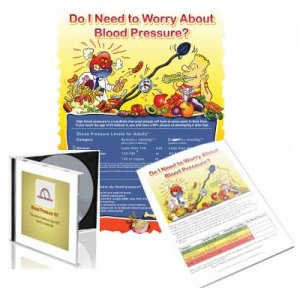 New blood pressure guidelines are causing quite a buzz this week. According to recommendations published in the Journal of the American Medical Association (JAMA), fewer older Americans will need to take blood pressure medications. This is a dramatic shift from the older guidelines, which had been in place for the last 30 years.Let's back up for a moment.Roughly 78 million American adults are affected by high blood pressure, which is also known as hypertension. The previous guidelines had stated that people should have a blood pressure reading of no more than 140/90. These same guidelines advised people with higher blood pressure levels to take medication and make lifestyle changes in order to get their numbers back down.Now, however, that guideline is changing. According to the report itself, "There is strong evidence to support treating hypertensive persons aged 60 years or older to a BP goal of less than 150/90 mm Hg […] however, there is insufficient evidence in hypertensive persons younger than 60 years for a systolic goal, or in those younger than 30 years for a diastolic goal, so the panel recommends a [blood pressure] of less than 140/90 mm Hg for those groups based on expert opinion." (JAMA).In other words, the report states that older Americans need to bring their blood pressures below 150/90, rather than below 140/90. The latter levels are for people under the age of 60.According to USA Today, the report's lead author, Paul James, stated that "'there's no data to show that older people get any benefit from further reducing their blood pressure to 140/90."
New blood pressure guidelines are causing quite a buzz this week. According to recommendations published in the Journal of the American Medical Association (JAMA), fewer older Americans will need to take blood pressure medications. This is a dramatic shift from the older guidelines, which had been in place for the last 30 years.Let's back up for a moment.Roughly 78 million American adults are affected by high blood pressure, which is also known as hypertension. The previous guidelines had stated that people should have a blood pressure reading of no more than 140/90. These same guidelines advised people with higher blood pressure levels to take medication and make lifestyle changes in order to get their numbers back down.Now, however, that guideline is changing. According to the report itself, "There is strong evidence to support treating hypertensive persons aged 60 years or older to a BP goal of less than 150/90 mm Hg […] however, there is insufficient evidence in hypertensive persons younger than 60 years for a systolic goal, or in those younger than 30 years for a diastolic goal, so the panel recommends a [blood pressure] of less than 140/90 mm Hg for those groups based on expert opinion." (JAMA).In other words, the report states that older Americans need to bring their blood pressures below 150/90, rather than below 140/90. The latter levels are for people under the age of 60.According to USA Today, the report's lead author, Paul James, stated that "'there's no data to show that older people get any benefit from further reducing their blood pressure to 140/90."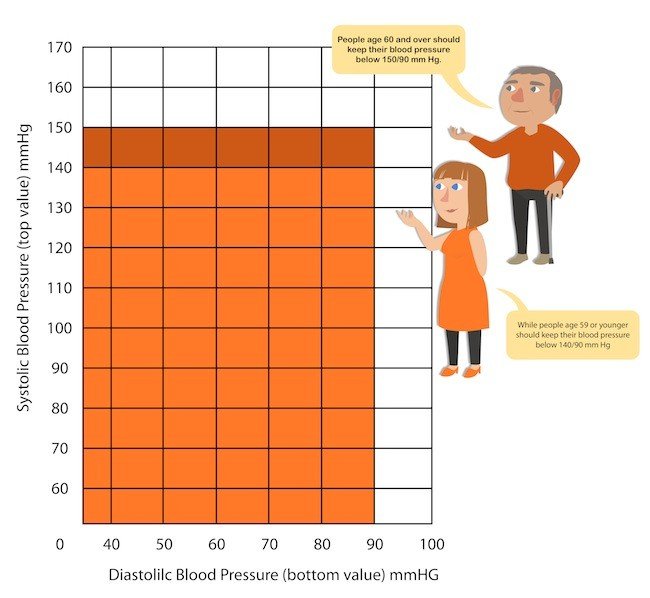 So, where did the evidence for this claim come from?The abstract of the report from JAMA states, "Evidence was drawn from randomized controlled trials, which represent the gold standard for determining efficacy and effectiveness. Evidence quality and recommendations were graded based on their effect on important outcomes." The review of this evidence took 5 years and included recent studies.According to the study authors, the risks of getting blood pressure below 150/90 in older adults far outweigh the benefits. Some medications can lower blood pressure too far, causing dizziness and even falls. Others can interact with additional drugs, and many have at least some side effects.Reception:Let's take a moment to explore the reactions from doctors and other health professionals. After all, these new guidelines have been changed rather significantly.USA Today revealed that "Elliott Antman, the president-elect of the American Heart Association, says he's concerned that the new guidelines could leave some Americans with untreated but serious high blood pressure, putting them at greater risk of health problems."According to the New York Times, “'When I discuss this with my colleagues and friends in the community, most are pretty livid,' said Dr. George Bakris, the director of the hypertension center at the University of Chicago."Our very own Dr. James J. Kenney also had some thoughts on this adjustment. "Even if we assume that the drugs have no adverse effects and they only lower blood pressure, this means the risk of dying from a cardiovascular disease event is about 4 times greater with medically-controlled hypertension than it is in someone the same age maintaining an optimal BP with diet and lifestyle." He elaborates, "So here is the problem for doctors. Do they tell their patients that blood pressure medications have a zero percent cure rate, that even if their blood pressure is medically 'controlled' with drugs, their risk of a fatal or nonfatal heart incident is likely higher than if they were smoking a pack of cigarettes daily but maintaining an optimal blood pressure level without drugs? "Caveats:There are also some caveats to these recommendations.One such caveat is that people shouldn't read the report and then toss their medications out the window. Stopping blood pressure drugs suddenly can cause significant side effects. In fact, it's wise for people who want to phase down their medications to talk with their doctor first.Another caveat comes straight from the JAMA report: "Although this guideline provides evidence-based recommendations for the management of high [blood pressure] and should meet the clinical needs of most patients, these recommendations are not a substitute for clinical judgment, and decisions about care must carefully consider and incorporate the clinical characteristics and circumstances of each individual patient."So, what do you think about these new recommendations?Let us know by tweeting @foodandhealth or writing on our Facebook wall. And if this discussion has reminded you that you need more blood pressure education materials, then check out the amazing selection in the Nutrition Education Store.If you don't find exactly what you want, let us know and we'll create it for you.
So, where did the evidence for this claim come from?The abstract of the report from JAMA states, "Evidence was drawn from randomized controlled trials, which represent the gold standard for determining efficacy and effectiveness. Evidence quality and recommendations were graded based on their effect on important outcomes." The review of this evidence took 5 years and included recent studies.According to the study authors, the risks of getting blood pressure below 150/90 in older adults far outweigh the benefits. Some medications can lower blood pressure too far, causing dizziness and even falls. Others can interact with additional drugs, and many have at least some side effects.Reception:Let's take a moment to explore the reactions from doctors and other health professionals. After all, these new guidelines have been changed rather significantly.USA Today revealed that "Elliott Antman, the president-elect of the American Heart Association, says he's concerned that the new guidelines could leave some Americans with untreated but serious high blood pressure, putting them at greater risk of health problems."According to the New York Times, “'When I discuss this with my colleagues and friends in the community, most are pretty livid,' said Dr. George Bakris, the director of the hypertension center at the University of Chicago."Our very own Dr. James J. Kenney also had some thoughts on this adjustment. "Even if we assume that the drugs have no adverse effects and they only lower blood pressure, this means the risk of dying from a cardiovascular disease event is about 4 times greater with medically-controlled hypertension than it is in someone the same age maintaining an optimal BP with diet and lifestyle." He elaborates, "So here is the problem for doctors. Do they tell their patients that blood pressure medications have a zero percent cure rate, that even if their blood pressure is medically 'controlled' with drugs, their risk of a fatal or nonfatal heart incident is likely higher than if they were smoking a pack of cigarettes daily but maintaining an optimal blood pressure level without drugs? "Caveats:There are also some caveats to these recommendations.One such caveat is that people shouldn't read the report and then toss their medications out the window. Stopping blood pressure drugs suddenly can cause significant side effects. In fact, it's wise for people who want to phase down their medications to talk with their doctor first.Another caveat comes straight from the JAMA report: "Although this guideline provides evidence-based recommendations for the management of high [blood pressure] and should meet the clinical needs of most patients, these recommendations are not a substitute for clinical judgment, and decisions about care must carefully consider and incorporate the clinical characteristics and circumstances of each individual patient."So, what do you think about these new recommendations?Let us know by tweeting @foodandhealth or writing on our Facebook wall. And if this discussion has reminded you that you need more blood pressure education materials, then check out the amazing selection in the Nutrition Education Store.If you don't find exactly what you want, let us know and we'll create it for you.